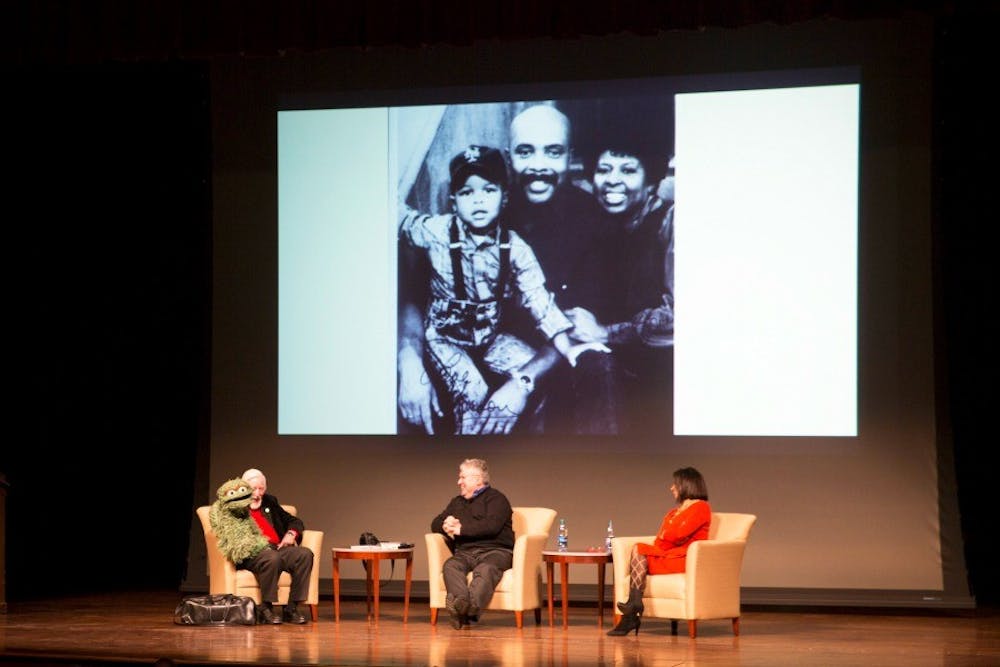By Hailey Mallendick, Senior Staff Writer
In the 46 years 'Sesame Street' has been on the air, it has gone from an American children's show to a world-wide cultural lesson.
Monday night, several of 'Sesame Street's' legends, Caroll Spinney and Sonia Manzano, joined journalist Michael Davis to talk to Oxford residents and Miami University students as part of the university's Lecture Series.
Davis, author of 'Street Gang, The Complete History of Sesame Street,' boasted about the astonishing success of the show across the world.
"There are co-productions of 'Sesame Street' on six continents," said Davis. "The idea has circumnavigated the world."
Manzano, who played the character 'Maria' on 'the street' for 30 years, was also surprised by the success of the show.
"The show is very American, but they love it in other countries," said Manzano. "The show has lived so long because we have always reflected the world we lived in."
'Sesame Street,' which began in 1969, started in a different America than we live in today.
"It was a very idealistic time in America. The country was the exact opposite that it is now," said Manzano. "The target audience was African American children and trying to teach them numbers and the alphabet before starting school in addition to bridging the race gap."
While African American children were the original focus of the show, it slowly shifted over the years to focus on children of all races.
"The show celebrates diversity and always has," Davis said. "Being on PBS, it was protected in a way."
In fact, the character of Maria was created out of protest from Latinos to provide a role model for children.
"The Latinos on the coast said that if there is a role model for African Americans, there should be one for Latinos," said Manzano. "That was how I got cast."
While Sesame Street incorporated cultural diversity in its wide range of cast, it also incorporated characters with different emotions and personalities.
Spinney, the voice behind both Oscar the Grouch and Big Bird, presented a wide range of emotions to assist in teaching lessons.
"They were kind in giving me two characters, who are both somewhat the same in that they are loners and so am I," said Spinney. "People ask me my favorite and I say, 'whichever I'm playing.'"
Both of Spinney's characters were unique in their personalities, but especially Oscar.
"He provides me with the chance to be funny, but he's not laughing at people," said Spinney. "He's negative and it's humorous."
"Up until Oscar, everyone always thought that children had to be nice, but he showed them that it's okay to be grumpy and the world won't end," said Manzano.
Spinney's most notable character on the show was Big Bird.
"Big Bird is different because he can feel more things than most of the other puppets," said Manzano.
Both Manzano and Spinney unanimously agreed that their favorite show was "Goodbye. Mr. Hooper." In the show, they taught children about death while saying farewell to their dear friend Mr. Hooper.
"[Spinney's] greatest performance was in the 'Goodbye, Mr. Hooper' show," said Manzano. "Sharing with children what death is and that it is final is a hard lesson, and they still don't believe us."
'Sesame Street' has been on the air for nearly five decades and shows no signs of stopping anytime soon.
"They have a goal book for some of the goals they want to cover, this year has been science and kindness," said Spinney. "They will probably keep on this way since we are trying to make better children."

